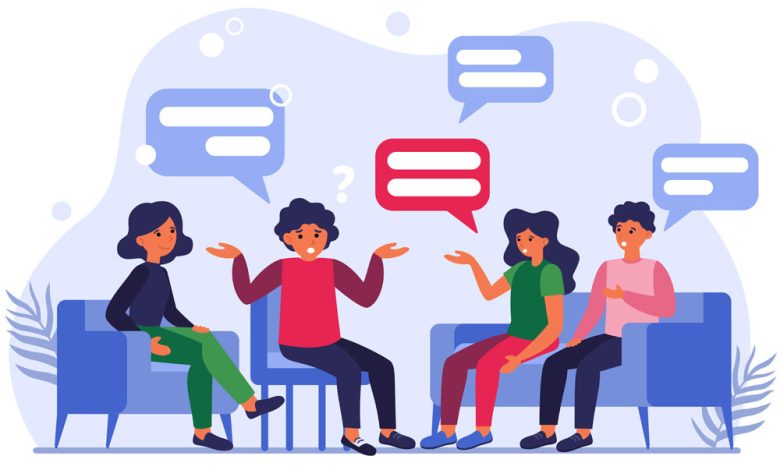Group Discussion Topics: Current and Latest GD Topics

For B-school students, placements are a period of intense stress and anxiety. In order to find the Holy Grail—a job in their ideal company—candidates must overcome challenges like taxing interviews and sneaky group discussion, just like valiant knights of old. For practically all Indian corporations, such as Hindustan Unilever, ITC, PepsiCo, etc., group discussions are a requirement.
We’ve prepared a list of the newest MBA group discussion topics for 2021 in this article, covering a variety of subjects. Find them at the bottom of this article if you need to find them quickly. But first, let’s thoroughly break out GDs from a recruiter’s standpoint and discuss how to solve them.
1. What skills are judged in a Group Discussion?
Any student who has gone through the placement process will attest to the fact that group talks are intended to assess many of the essential talents a manager must have, and employers prefer to choose applicants who demonstrate these attributes. Here are some examples of those:
- Leadership skills
- Communication Skills
- Team playing skills
- Receptivity to new ideas
- Analytical capabilities
- Problem-solving
So, whether you love them or detest them, group conversations are something you cannot avoid. However, you can become ready for GD. You might ask, how? Be at ease! That will follow.
2. How to prepare for Group Discussion?
We have explored the breadth of the kingdom, spoken with seasoned recruiters and B-school applicants, and compiled ideas that will help you succeed in any challenging sales and marketing group discussion.
Me vs We – You win or lose as a group in GDs.
You must first keep in mind that a group discussion is not a single presentation. The entire group’s total performance is assessed as a whole. When assessing group talks, recruiters place a lot of attention on strong team-playing abilities. It is quite uncommon for recruiters to have a set number of candidates they want to advance to the next stage when analysing a group discussion. As many pupils whose performances they like can be interviewed. The best way to ensure that the most students from your group advance to the next round is to perform brilliantly as a group rather than competing for a limited number of slots. All members of the group stand to gain greatly from this subtle change in the group’s goals. It is imperative to conduct the conversation with professionalism at all times.
Recommended Read: Basic computer knowledge
If a conversation becomes tense, it may be abandoned entirely or only a small number of candidates may advance to the next stage. Using pronouns in the plural, such as “we can discuss…” or “the answer as discussed by us…”, is also a good idea. A successful group discussion can be identified by a result or solution that was agreed upon by all participants.
3. How to structure a group discussion?
Using established models to provide direction for the discussion is one method to give it structure.
Regarding case-based GD subjects
Utilize a STP (Segmentation-Targeting-Positioning) model and then go into great detail on Kotler’s 4Ps (Product – Price – Place – Promotion). This will guarantee a comprehensive discussion of the brand or item mentioned in a case.
GD-general topics
To examine a problem from all angles, try using the PESTLE model (political, economic, social, technical, legal, and environmental) or the 5Cs (context, company, competitors, customers, and collaborators).
Regular practise is essential for mastering GDs, and almost all B-schools hold dummy GDs prior to placement season. It is advisable to attempt to apply the STP and 4P models during such practise GDs in order to grow accustomed to them. The group discussion can avoid sounding like a fish market if everyone in the group uses the same model to organise their ideas. The conversation will go according to a predetermined format and cover all aspects of the subject without getting out of hand.
4. Why Mediators Win GDS?
That person seeking to maintain civility in the group conversation acts as the mediator. They attempt to control emotions and direct the conversation toward calmer waters while everyone around them is losing their minds. This is similar to how parliament speakers do it.
That is a great predictor of a candidate’s leadership skills as well as their ability to maintain composure under pressure, which is why recruiters adore it. Among the things a mediator does are the following:
- A mediator frequently starts the group conversation by outlining the subject at hand.
- He or she pulls the conversation back to the main subject when it veers off on a tangent.
- He or she monitors the passage of time. When a conversation is interesting, it’s common to lose track of time and talk about the same issue for an excessive amount of time. When this happens, the mediator tries to direct the conversation by pointing out the passing of time and providing a framework for the conversation, saying something like, “Since we only have six minutes left, let’s move on to the second problem in the case.”
Other candidates may begin directing their arguments at the mediator through various non-verbal indications as they start to emerge as the team’s informal leader. This is a good thing for the candidate. Employers today seek applicants who can work well in a team atmosphere, particularly when filling sales and marketing positions. A candidate may come across as a control freak if there are too many interruptions, which can impede the conversation’s flow and hinder their candidacy.
How to understand Verbal and Non-verbal Language Cues
You are being examined as soon as you walk into the room. Only one person can speak at a time in a group conversation, but nonverbal indicators like your body language can communicate even when you can’t. Maintaining eye contact with the people in your group (never the panel; keep in mind that they are intended to be invisible) and nodding shows that you are paying attention and is a good reflection on you. On the other hand, gesturing, fidgeting, or slouching can be interpreted as displays of arrogance or a lack of interest in the topic at hand. Even if you’re tense or concerned, you should refrain from making physical movements that indicate pain, such as massaging your head or touching your nose or hair.
Avoid altering your clothing, chewing your lips, crossing your arms and legs, tapping your fingers, or other tense behaviours by sitting up straight. To the panel, you want to come out as assured and composed.
5. Are We On The Same Page?
Language is symbolic by nature, thus it is important to watch out for bypassing, which happens when two or more people have distinct meanings for the same phrase but are unaware of it. A false agreement or the illusion of a disagreement when there isn’t one might result from bypassing. This may come up in relation to ethereal ideas like “patriotism,” etc. Therefore, it is advised to utilise as much concrete language and specific examples to clarify your meaning when using abstract terms in an MBA group discussion. Additionally, whenever possible, try to quantify your findings. For instance, if the topic is “drunk driving,” you may define it in the introduction.
6. Mind Your Language!
It is a good idea to refrain from using emotive language because it can arouse strong emotions and impede attentive listening. The group mediator may step in and attempt to diffuse a situation where the usage of an emotive word sets off emotional reactions.
For example, if someone were to remark, “He’s simply a failed politician, not a scientist, and he’s just prancing around as he searches for a new platform. What possibly could he know about climate change? “So, in other words, you think that the opinions of a non-scientist are not valid on scientific matters like global warming, and you suspect his motives?” the mediator might ask.





